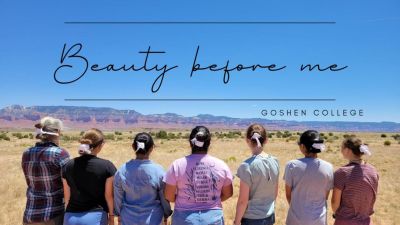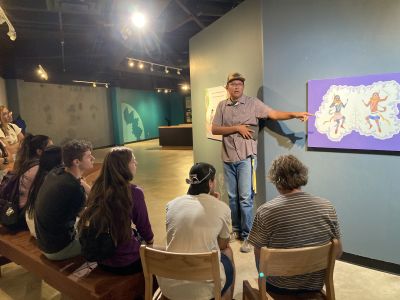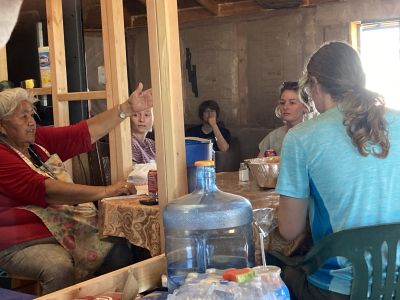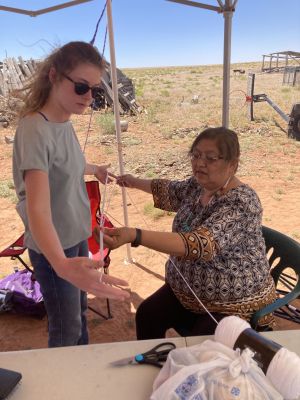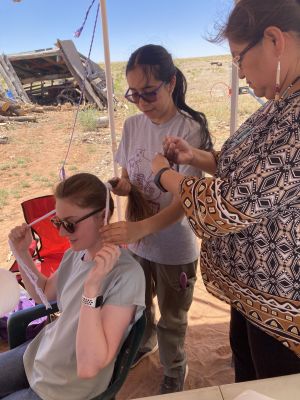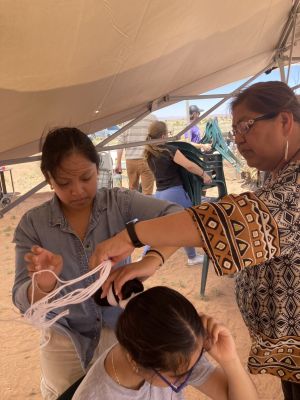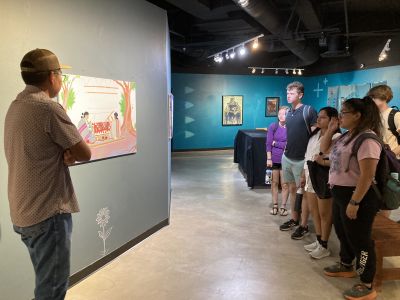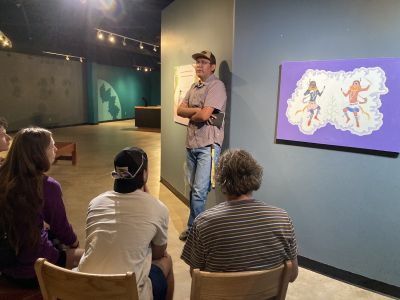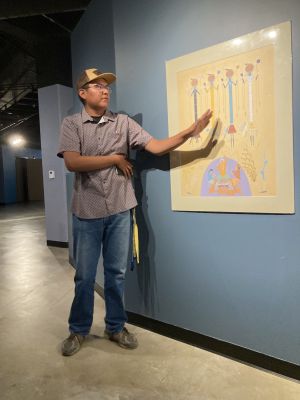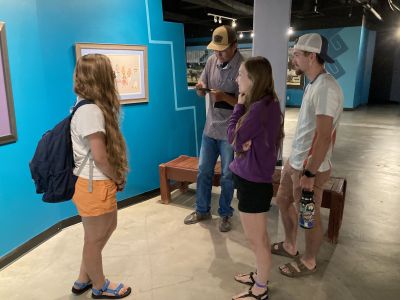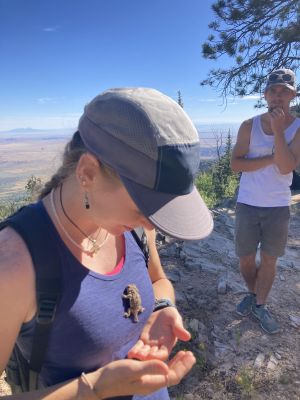Teresa Ross Richer reflects on a key concept in Navajo culture:
Balance: a condition in which different elements are equal or in the correct proportions.
In my culture, we do not seem to take to heart the concept of balance or consider pursuing balance in our lives.
As a group we have had the chance to hear and learn from many knowledgeable Navajo elders and students at Diné College — founded in 1968 as the first tribally-controlled college in the United States. A common theme I have picked up on throughout our immersion in Navajo culture is the importance of balance, seeking to acquire equilibrium in all aspects of life.
A student named Myron Denetclaw, enrolled in the fine arts program at Diné College, shared with us his paintings of Navajo ceremonies and talked about the importance of these ceremonies in Diné culture. He explained that ceremonies are central to Navajo tradition because of their focus of bringing back balance. Some ceremonies focus on restoring balance between humans and Mother Earth; repairing any harm we have caused to the natural world and praying for harmony. Other ceremonies are centered around balance within the community and the family.
Considering the western dictionary definition of balance at the beginning of this post, it is clear that Navajo culture strives to live out this definition. By returning to ceremony, Navajo tradition makes space for different elements to be brought back to their correct proportions, just as our western definition puts it.
Immersing ourselves in Navajo culture and being present in the space, engaging in the experience, and feeling the generosity of the people has shown me the impact that reaching balance can have on one’s life. I have felt the impact of lives lived well, balanced through the generosity and patience shown to us.
For example, we spent a full day with Grandma Priscilla who taught us how to make fry bread, showed us the technique for rolling dough strips for dumpling stew, gave us yarn to learn the traditional hairstyle, and to finish off the day she took us up to Buffalo pass to tell us traditional stories. Sharing with us the beauty of the canyons and respect held towards the eagles and the horned toads gives proof to true lives lived in balance. Eagles soar the highest of all birds and are believed to carry prayers to the highest heavens. Horned lizard are sometimes referred to as Che, or grandfather, and it is a Navajo custom to place the reptile on your heart as a sign of respect and a way to connect to the power and strength of one’s ancestors.
By having a practice of staying at peace with nature and being in harmony with the world around her, Grandma Priscilla was able to be the patient and generous person she is, giving her full attention to us by being generous with her time and fully present in all the activities of the day. It’s hard to find someone so grounded and balanced in my own culture.
I have learned a lot from the Navajo culture of living in balance, but there is one thing that I think our Western culture could really benefit from; the ability to accept imperfections. One road to balance is identifying flaws. In my culture we fear imperfection, and lack the ability to humble ourselves and admit where we may be going wrong. Acceptance of mistakes and the ability to be humble leads to balance. We cannot reach balance in ourselves or in society if we cannot even see that things are out of proportion. It is this ability to recognize imbalance and mistakes that living with the Navajo has taught me. I want to take the practice of taking time out to restore balance in my life back with me and continue learning how to live in balance with nature, myself and other people.
